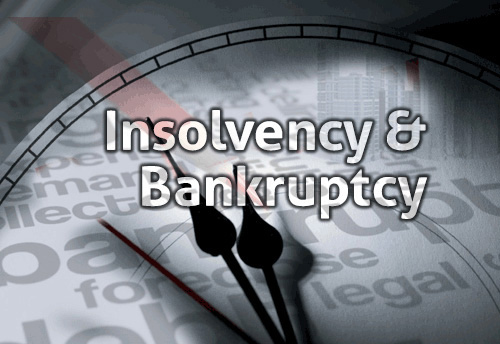Insolvency Laws in Nepal
WHAT IS INSOLVENCY?
- Insolvency is the state of being unable to pay the money owed to a Creditor by a person or company.
- The person or company who are in the state of insolvency are referred as insolvent.
- As per the Insolvency Act, 2006 ‘Being Insolvent’ is a state of being unable, or appearing to be unable, to pay any or all of the debts due and payable to or payable in the future to creditors or a situation where the amount of liabilities of a company exceeds the value of the assets.
INSOLVENCY, LIQUIDATION AND BANKRUPTCY
Insolvency | Liquidation | Bankruptcy |
| It is the financial state of a person (Individual or Corporate body) in which they are unable to repay debt owed to their creditors, in time, or at all. | It is the legal ending of the company. The assets are discharged and are sold to repay the creditors and the business is closed and its name is removed from the Company Registrar’s Office. | It is the legal declaration and final way out in Insolvency. It is the legal process that happens when debtor declares when they can no longer pay debts off to creditor. |
WHO CAN FILE APPLICATION FOR INSOLVENCY? (Insolvency laws in Nepal)
- A company itself that has become insolvent.
- Ten percent of the total creditors who has lent money to a company.
- Shareholders who have subscribed at least five percent of the total shares.
- Debenture holder who have subscribed at least five percent of the total debentures.
- A liquidator who is appointed to liquidate a company.
- In the case of a company carrying on any specific type of business, like Bank and Financial Institution, Insurance company has to obtain prior approval of its regulatory authority.
IMPORTANCE OF INSOLVENCY LAW IN THE POST COVID-19 NEPALESE ECONOMY
- It provides the insolvent sometime to repay the debt.
- It also provides the creditors a way to get back their money from the insolvent debtors.
- It also allows debtors to obtain a fresh start by relieving them from their debt [Bankruptcy]
WHEN CAN A COMPANY CLAIM TO BE INSOLVENT?
- If the General Meeting of shareholders adopts special resolution or a meeting of the Board of Directors decides that the company has become insolvent.
- If there is a court order to repay debt within 35 days and if the debt is not paid off within that time.
- If a company fails to pay the debt within 35 days after receiving the notice the creditor or if the debtor does not file application to dismiss the notice in the court.
- If it is proved that the liability of the company exceeds the value of its assets or the company itself admits that it has become insolvent.
DOCUMENTS / EVIDENCES REQUIRED TO FILE APPLICATION
- In case company itself files for Insolvency:
- Document certified by the Board of Directors declaring that the company has become insolvent.
- A special resolution adopted by the Board of Directors of the company to initiate the insolvency proceedings.
- Certified copies of the Balance-sheet and Auditor’s report of the company available at the time of filing application for insolvency proceedings.
- In case the creditor of the company files for Insolvency:
- A statement of the Principal and Interest of the debt, which the creditor claims to be due and payable by the company.
- The date on which the company borrowed the debt claimed by the creditor stating the reason to take on the debt.
- Detail of the due amount and stating that that amount is payable immediately.
- Reason or ground on which creditor believes that the company has become insolvent.
- When the liquidator makes the application:
- Evidence proving that a person is appointed as the liquidator by a company for the purpose of Insolvency proceedings.
- Opinion of the liquidator regarding the insolvency of a company filing application.
- In case of shareholders and debenture-holders filing Insolvency application, an approval of the court to initiate the process is required and the conditions mentioned in the court approval letter must be complied.
INFORMATION REQUIRED TO FILE APPLICATION (Insolvency Laws in Nepal)
- Name and address of the company
- Reason to file
- Financial standing
- Document evidencing the company being insolvent
- Other supporting documents
- Name of the Applicants
- Signature & Date
OUTCOME OF INSOLVENCY PROCEEDING
Depending upon the report submitted by the Liquidator, resolution adopted by the Creditor’s Assembly and the restructuring plan submitted by the company, the court gives following order within 7 days of the adopted resolution:
- To immediately liquidate the company.
- To implement the restructuring the program of the company.
- To wait for some time & see if there’s probability for the progress of the company.
- To extend the period of insolvency proceedings to get further report.
- To dismiss the Insolvency proceeding.
For more information on Insolvency laws in Nepal and Bankruptcy law, please email us at info@lawchintan.com.
Or simply fill out the contact us form by clicking the link below and we will contact you.





0 Comments